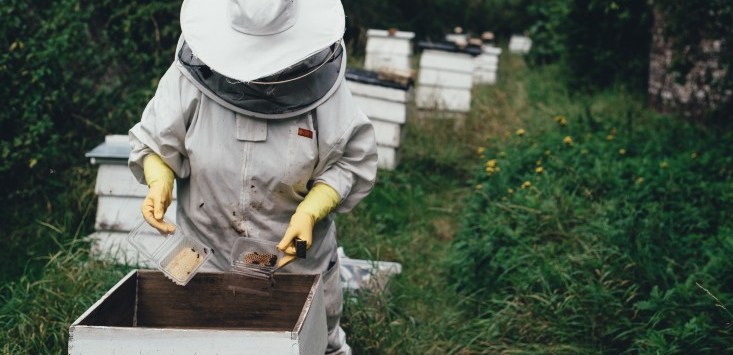
Chinese export tariffs are already disrupting Australian wine, barley and seafood industries, as well as meat processing businesses, and according to IBISWorld, small businesses in the honey, fruit and dairy industries could be targeted next.
Small businesses in these sectors “should be on high alert for tariff disruptions in the near future”, IBISWorld analyst Liam Harrison warned in a report released on Tuesday.
China accounts for 28.8% of Australia’s two-way trade in goods and services, the report notes, and the country is our largest export destination, accounting for more than 35% of all merchandise and service exports in the 2019/20 financial year.
In the dairy industry, there is particular cause for concern in the milk powder manufacturing sector. A massive 97.3% of revenue in this sector comes from export markets, and 40.6% of export revenue comes from China.
Milk and cream processing see almost 30% of export revenue from China, but exporting makes up considerably less of total revenue at 13.6%.
Beekeeping businesses may also be facing a challenge. According to IBISWorld data, 20.9% of revenue in this sector comes from export markets, and almost 27% of that is made up of exports to China.
Manuka honey, in particular, is popular in the Chinese market. The product is sourced from a type of tea tree found only in New Zealand and south-east Australia, and so the beekeeping industry across the Tasman would likely benefit if China imposed tariffs on Australian honey, said Harrison.
Producers of fruit also rely relatively heavily on Chinese exports. According to IBISWorld, the apple, pear and stone fruit sectors combined see 15% of their revenue come from export markets. Of that expert revenue, 30% comes from China.
Citrus fruits, nuts and ‘other fruits’ are potentially even more vulnerable to new Chinese tariffs. Almost 27% of revenue here comes from exports, and 45.4% of export revenue comes from China.
This is an “already weakened industry”, having faced extremely hot weather and the devastating bushfire season early in the year, and with COVID-19 travel restrictions leading to a shortage of pickers, Harrison explained.
“Losing China as an export market could be devastating,” he said.
“Pulled out the rug”
This warning comes amid an ongoing trade dispute that has seen China place tariffs of between 107% and 212% on imports of Australian wine, adding to existing tariffs on barley, as an anti-dumping measure.
Speaking to SmartCompany earlier this month, the owners of Aussie winery d’Arenberg said the tariffs are more of a concern to the almost 100-year-old business than COVID-19 or the bushfire crisis earlier in the year.
According to Harrison, since the China-Australia Free Trade Agreement was signed in December 2015, many Aussie businesses have made considerable investments in expanding their ability to trade with China.
In 2020 — on top of the myriad other challenges the year has brought — that has come crumbling down.
“The tariffs and trade restrictions introduced over the past year have pulled out the rug from beneath many Australian businesses, dissuading businesses from pursuing trade with China,” he said.
Chinese investment in Australia has also decreased significantly, from $15.8 billion in 2016 to $2.5 billion in 2019.
According to the Australian National University, that figure is expected to be lower again for 2020.
Handpicked for you

“Our friends need our help”: Ministers launch global social media campaign to call on consumers to buy Aussie wine



COMMENTS
SmartCompany is committed to hosting lively discussions. Help us keep the conversation useful, interesting and welcoming. We aim to publish comments quickly in the interest of promoting robust conversation, but we’re a small team and we deploy filters to protect against legal risk. Occasionally your comment may be held up while it is being reviewed, but we’re working as fast as we can to keep the conversation rolling.
The SmartCompany comment section is members-only content. Please subscribe to leave a comment.
The SmartCompany comment section is members-only content. Please login to leave a comment.